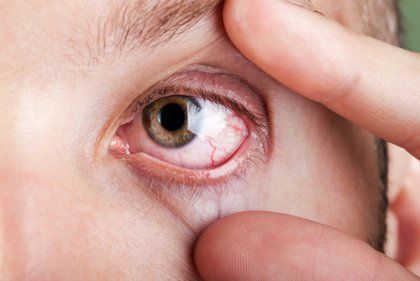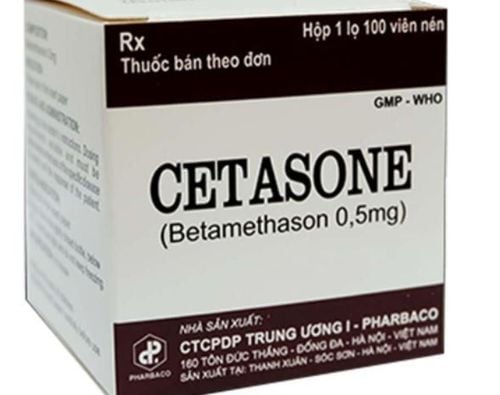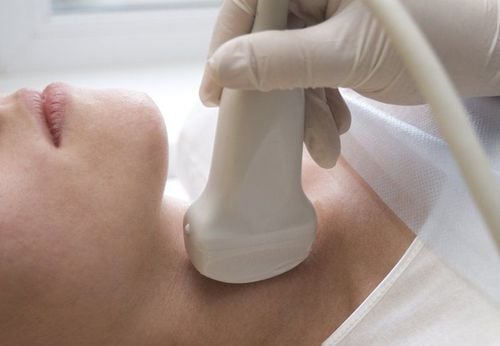This is an automatically translated article.
Diabetes is a disease of the metabolic system that can cause many complications to many organs in the body. Among them, macular edema is a common condition. So how does diabetic macular edema progress?
1. What is diabetic macular edema?
The macula is also known as the macula. This is the part located in the retina and where the light passing through will focus clearly, here to help us see objects clearly.
Macular edema is an eye complication of diabetes, it occurs when blood sugar is too high and damages the retina inside the eye. The retina receives light and transmits signals to the brain through a nerve at the back of the eye called the optic nerve. The small blood vessels that connect to the retina are more likely to leak fluid or bleed when sugar levels are too high and cause the center of the retina to swell. The eyes will then grow new blood vessels, but they will be weaker than before. This is the most common cause of vision loss in people with diabetes.
2. Progression of diabetic macular edema
The disease can occur at any stage of diabetes, with mild or severe diabetic retinopathy. To date, there is no time frame for how long it takes for macular edema to get worse or there is a scale for assessing disease progression. Therefore, when examining the doctor, the doctor will pay attention to two things during the eye exam, that is: The degree of edema and the location of the edema.
3. Symptoms of diabetic macular edema
With macular edema, the patient's vision will be blurred or have a wavy image near the center of their field of vision. Colors may be blurred or blurred. There are some cases where there are no significant symptoms, but most will present with mild blurred vision to significant loss of vision and possibly vision problems in only one eye.
Doctors often associate more severe symptoms of macular edema with retinal edema. The more edema a patient has from leaking fluid and the closer they are to the center of the field of vision, the more likely they are to have vision problems.
4. Diagnosis of macular edema
Diabetes that is not well controlled can affect the patient's visual function. There are cases where a person doesn't have any symptoms of the disease, so it's important to have a routine eye exam once diagnosed with diabetes at least once a year.
To check the condition, the ophthalmologist will dilate the patient's pupils and take pictures of the retina. After performing an imaging test using optical coherence tomography or OCT, your doctor will tell if the retina is thickened by the fluid and where it occurs in the eye.
Alternatively, your doctor may use another imaging test called a fluorescein angiogram (FA). The drug is injected into the wing vein and moves through a blood vessel in the patient's eye. The machine then takes enhanced images and shows your doctor if fluid is leaking into your retina. The test also helps your doctor monitor any changes in your eyes over time.
5. Treatment of macular edema
Your doctor will discuss treatment options if the macular edema is near the center of your eye and is affecting your vision. The first thing to do is to suggest steady blood sugar control. In addition, there are several treatments that can help repair damage to the retina:
Anti-VEGF (Anti-VEGF) injection: First, the doctor will put a special medicine into the patient's eye to numb it. , then use a needle to put the medication into the eye. It works by blocking a protein called VEGF to promote the growth of new blood vessels that are more fragile than those found in healthy eyes. Anti-inflammatory treatments: Steroid injections calm inflammation in the eye. Laser: Doctors use laser-guided heat to repair leaky blood vessels in the retina. Surgery: The patient may have surgery to correct vision or remove the cloudy lens in the eye. You may need surgery to correct your vision or remove blood or gel (called the vitreous) that has built up in your eye. Among the above methods, anti-VEGF injection is the main treatment for severe cases of retinal swelling. Doctors will use laser therapy for macular edema that doesn't affect the central part of your eye.
Follow Vinmec International General Hospital website to get more health, nutrition and beauty information to protect the health of yourself and your loved ones in your family.
Please dial HOTLINE for more information or register for an appointment HERE. Download MyVinmec app to make appointments faster and to manage your bookings easily.
Reference source: webmd.com













